'India's mounting fossil fuel import bill will be a big economic challenge': Nitin Gadkari
Union Minister Nitin Gadkari spoke with Autocar Professional about his idea for an electric highway, his aspirations for India's auto safety and the urgency to reduce the country's massive fuel import bill.
Nitin Gadkari, the Minister of Road, Transport and Highways has been working overtime to get India's road infrastructure reach world-class levels. In ten years of his tenure at the ministry, he has inculcated a wave of modern and strategic thinking in the government's way of doing things. He now wants the private sector to participate in forthcoming road infra projects, especially the 'electric highway project' across India. Speaking with Autocar Professional for a Fireside chat at the recently held 63rd ACMA Annual Session, Gadkari shared his mission and government visions for future mobility.
The auto industry has to invest in almost everything to stay relevant and resources are finite. How can they be supportive?
India is the fastest growing economy in the world, and the growth of the automobile sector is a matter of pride for the country. Particularly in the auto component sector, the industry size is Rs 5.60 lakh crore and the total size of the automobile industry is 12.50 lakh crore. (We should) use the best technology, and make a product of international standards. Futuristic technology, vision and research is going to be helpful for future development.
Regarding automobile industry, the basic problem is that our import bill for fossil fuel is Rs 16 lakh crore, and the way the industry is growing, within five years, it can go up to more than Rs 25 lakh crore. So, this is going to be a big challenge from the economic point of view. The other issue is pollution due to fossil fuels. In comparison, if we look at electric cars and do the cost comparison, running a diesel bus is Rs 150 per kilometre. For electric bus, we received a tender for Rs 39 per kilometre for non-AC bus, and Rs 41 per kilometre for an AC bus.
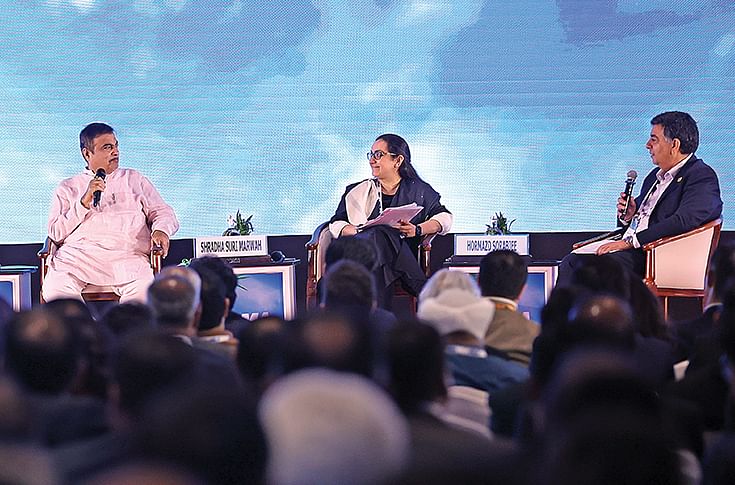 Nitin Gadkari, Minister of Road, Transport and Highways during the interaction with Hormazd Sorabjee.
Nitin Gadkari, Minister of Road, Transport and Highways during the interaction with Hormazd Sorabjee.
Now, we are planning to make an electric highway from Delhi to Jaipur via Ring Road, and the cost will come down to Rs 35 per kilometre. What I feel is that proven technology, economic viability, availability of raw material, and marketability of the finished product — these are important.
Despite making a lot of effort for alternative fuels and biofuels, the import of fossil fuels is constantly increasing. So, we need to find a way out regarding this economic challenge and to reduce pollution.
Hydrogen is the fuel for the future. So now, everything is open for (the industry), and the rule of nature is survival of the fittest. Brazil has successful ethanol technology. Japan and America have successful technologies pertaining to hydrogen. Whatever successful practices are available in the world, it is time for Bharat to accept that.
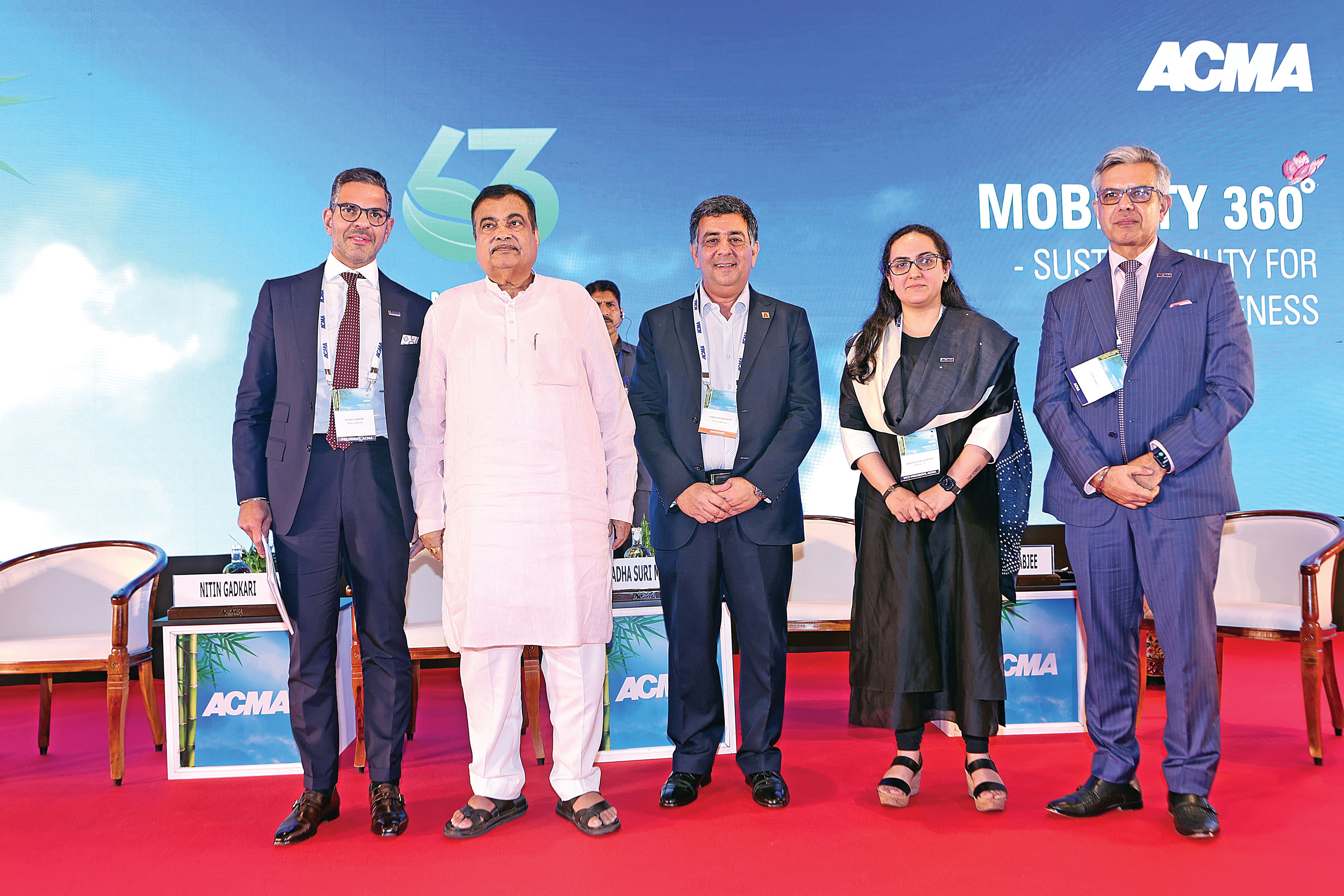
You spoke a lot about pollution and you pushed for the industry to go from BS4 to BS6 in record time, and I think what everyone would want to know is the next target. BS7. Is there any specific timeframe for that?
I want to submit humbly to you that I am responsible for your (the industry's) growth, but also pollution, because every time we make roads, we add 40 percent pollution. As you know, 90 percent of the traffic is on the road, and 70 percent of the movement of goods is also done by road transport. The ideal situation is to give first priority to waterways, second to railways, third to roads and fourth to aviation, but I am focused on making roads. So now, we are trying our level best with the cooperation of the industry, we have just jumped from Euro 4 to Euro 6.
Only thing which I will request of you (the industry) is that we should be at par with the world standard.
Should it be the same time frame as them (developed countries) as well?
I am very friendly to the industry. I know that the role of your industry is very important. I am very committed to the growth of the industry. So, we want to support you (the industry). We don’t want to discourage you. But after doing your production and getting profit, at the same time, as a citizen of this country you have to think about the problem of pollution. You have to think about the nation and the people, and in the welfare state, that is also our collective responsibility.
I think you are a bit cautious now!
I always tell people two things. In my ministry, I say, you convince me or be convinced by me. We are very open, transparent, time-bound, and corruption-free. You come to us, anyone wants to come, no problem. Suppose there is a mistake from our side, please tell me. We will rectify it. It's an open door policy. Convince me or be convinced by me.
I want to switch back to safety because again that is one of your pet subjects and just wanted to know the status of the six airbag notification.
Bharat NCAP and Star Rating has already started. Now, those manufacturers who are giving six airbags, are advertising it. They will get more market share. Whether you want it or not, I leave it to you. Now, consumers are cautious, and prefer to buy vehicles with six airbags. So it is (up) to the market. Star Rating is there. Bharat NCAP is there. Now the OEMS and the consumers can decide (what they want to do).
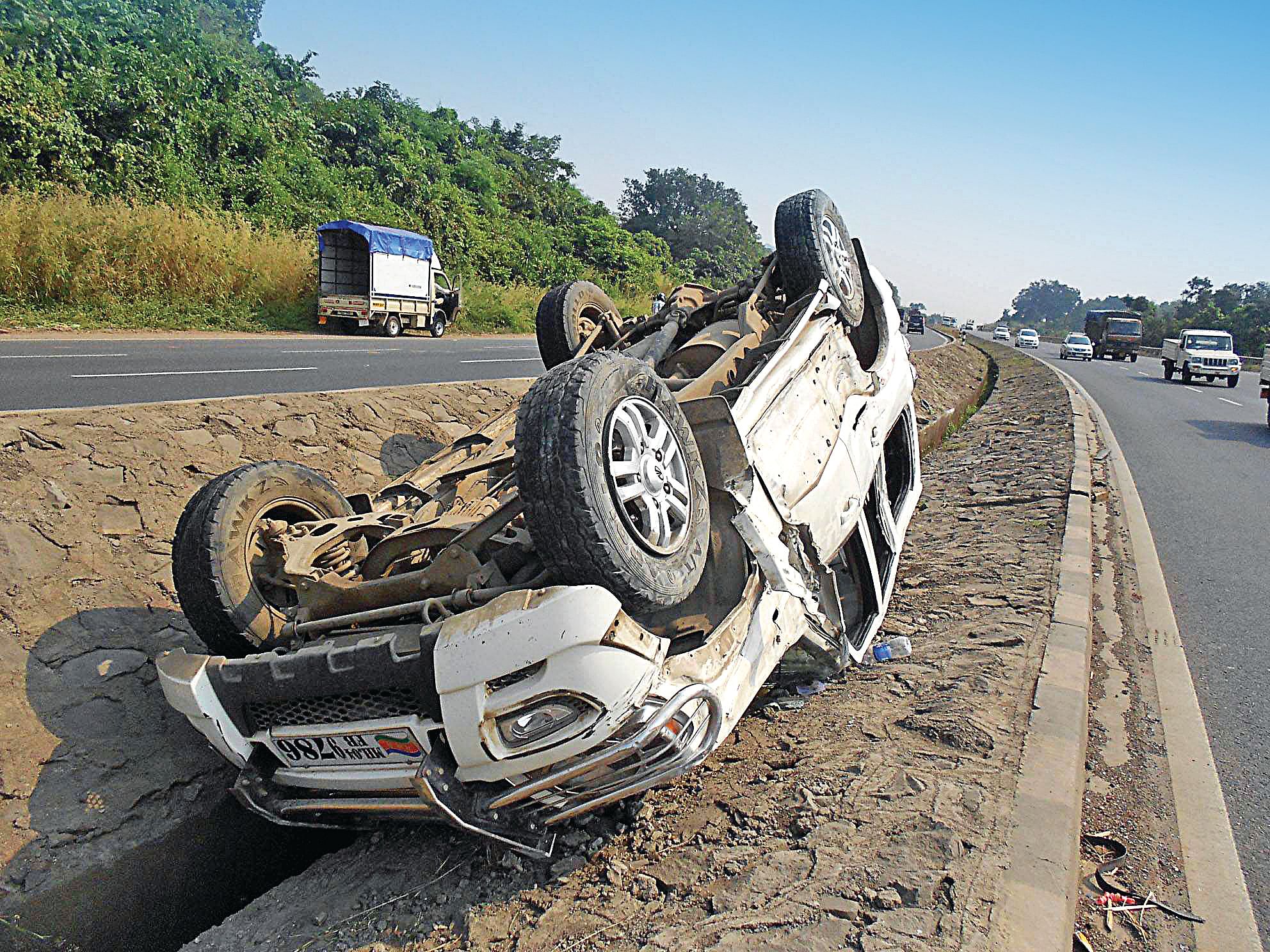 Rising fatal road accidents involving drivers aged between 18-34 is an area of concern for the ministry, says Gadkari.
Rising fatal road accidents involving drivers aged between 18-34 is an area of concern for the ministry, says Gadkari.
Right, so (six airbags) is not mandatory now, since it is part of the NCAP protocol.
Everyone is making it mandatory. We don’t need to make it mandatory. Everyone is doing it and some are advertising it. Those who don’t want to do it, are facing problems as far as their sale is concerned. We don’t want to make it mandatory. Because of the Star Rating and Bharat NCAP, I feel now that it is sufficient, and it is giving a good message to the industry.
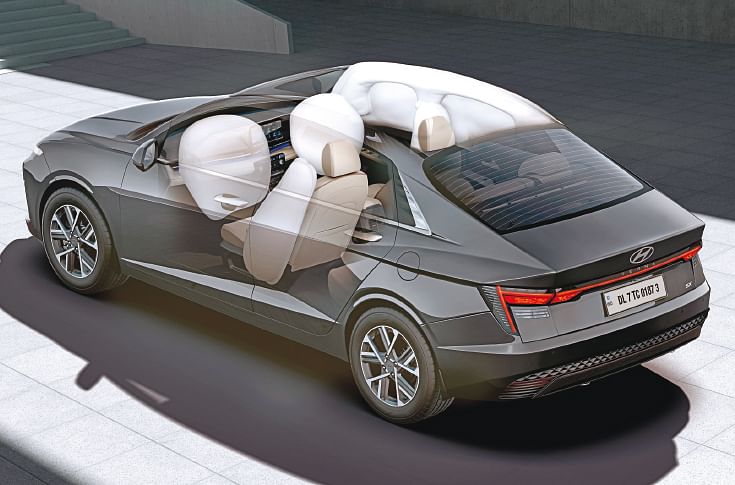
There’s a lot more to safety beyond just NCAP and everyone’s focus is on vehicular safety. Obviously, that is the most emotional part of it, but there is so much more to road safety. Don’t you think a more holistic approach needs to be taken?
Frankly speaking, this is a dark area in my ministry. Every year we have five lakh accidents and 1.5 lakh deaths. 60 percent of deaths occur from the age groups of 18-34. It is very unfortunate.
The basic reason is road and automobile engineering. We have taken all preventive measures as far as both these aspects are concerned. We have passed the road safety law and increased the fine. Coming to emergency services and education, we are already in the process of making 670 roadside amenities, out of which 270 amenities will have a heliport and then we are also making provisions for a drone port. In the future, we will take accident victims immediately to the hospital. We are trying to develop hospitals near highways. But education is important. The most important thing is human behaviour, which is a big problem. We need your cooperation in partnering with educational institutions to create awareness.
We have already opened a lot of driving schools but I request you to make three centres — the driving training school, fitness centre and scrapping centre at one place. The scrapping centre will give us precious raw materials like aluminium, copper, plastic, rubber, steel, by which the cost of components can be reduced by 30 percent. It will be very competitive for all of you.
We are giving a lot of permissions, and we want to train people. But one thing is very clear. Whatever we are doing sincerely, we are not satisfied with the result. Still, we have to do more, and I always tell my people to accept that. In my ten years as minister of road transport, everywhere there is a success story. But this (road safety) is a sector where it is not a success story. We still have to do more and your (industry) cooperation in promoting road safety will help.
You talked about having a highway for EVs. Could you elaborate on that?
It is in the thought process, but I am giving you the idea because I need your suggestion. I am the first person in the country who started BOT — Build, Operate and Transfer. The first road under this is the Thane Bhiwandi bypass in Mumbai.
Now, my idea about the electric highway is that NHAI will give the ‘Right of Way’. By that I mean and for that, they (NHAI) will give us 51 percent equity in the project. Why 51 percent? Because today, I will have a discussion with the Power Ministry and I am trying to get the electricity at the rate of Rs 3.50 per unit. Otherwise, the commercial power rate is Rs 11 per unit. So, it is easy for him to give this power rate to the government companies. I am willing to give all the rights and everything to the private PPA investor who is going to invest in the electric highway project. NHAI will make stations for the people, while the electric cable construction will be executed by the private investor. We will charge the electric usage just like toll and get the profit.
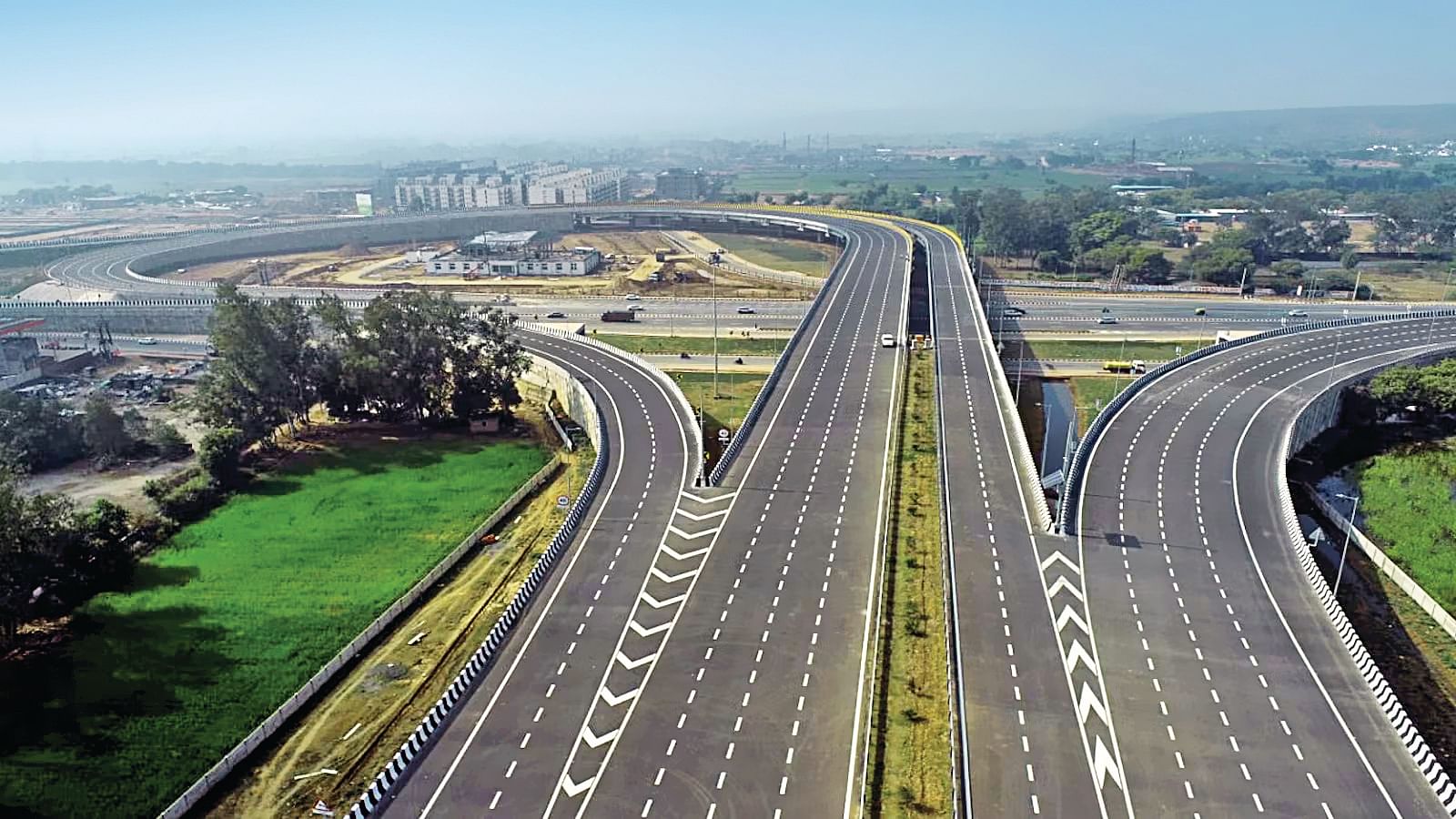 Recently, Nitin Gadkari shared a video showing glimpses of the newly constructed Dwarka Expressway, also called the Northern Peripheral Road or NH 248-BB.
Recently, Nitin Gadkari shared a video showing glimpses of the newly constructed Dwarka Expressway, also called the Northern Peripheral Road or NH 248-BB.
Now, the idea is that the logistics cost will be reduced by up to that level, that everyone will prefer to use the electric highway. So that is the idea on a preliminary level. Some of the investors are ready now. We are in discussion and are making the first pilot project of 49 kms on the ring road of Nagpur. The second project will begin from the Delhi-Panipat-Chandigarh road right up to Jaipur via Delhi-Mumbai Express highway. It struck me that if an expensive TV can be bought on monthly instalments, why not a tunnel road and bridges? And that idea inspired me, and I started making the policy for the PPP model and the first PPP model, Thane-Bhiwandi bypass has already been implemented.
For the first time, I am presenting this idea to you, that the electric highway is very viable economically. The rate of return on investment is very good. I am ready to offer you my 1,50,000 kilometres of the highway for it. Electric trucks and buses are the future. The cost as compared to diesel is 20 percent. So my suggestion to you is to invest in electric highways and be a part of this new futuristic technology journey in the country.
This interview was first published in Autocar Professional's October 1, 2023 issue.
RELATED ARTICLES
INTERVIEW: "EV Demand is Rebounding both in India and Around the Globe" - JLR's Rajan Amba
Jaguar Land Rover India MD Rajan Amba discusses the India–UK FTA, the company’s manufacturing plans, the upcoming Panapa...
TVS Celebrates 20 Years of Apache, Eyes Premium and Global Push
Marking two decades of its flagship performance brand, TVS Motor unveiled special anniversary editions on Saturday while...
Q&A: Mahindra's Nalinikanth Gollagunta on Upcoming Festive Season, 'Bold' Design Choices
Automotive Division CEO Nalinikanth Gollagunta says mid-teens growth is achievable with Roxx ramp-up, BEVs, and a resil...






 06 Oct 2023
06 Oct 2023
 14574 Views
14574 Views





 Prerna Lidhoo
Prerna Lidhoo


 Darshan Nakhwa
Darshan Nakhwa


